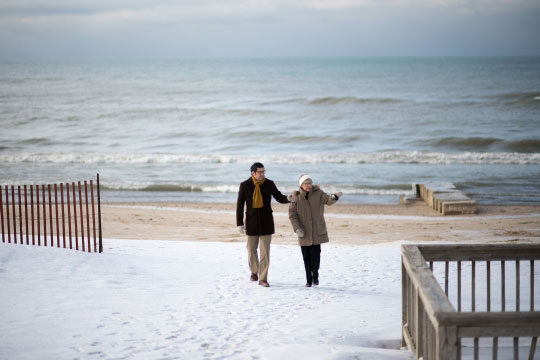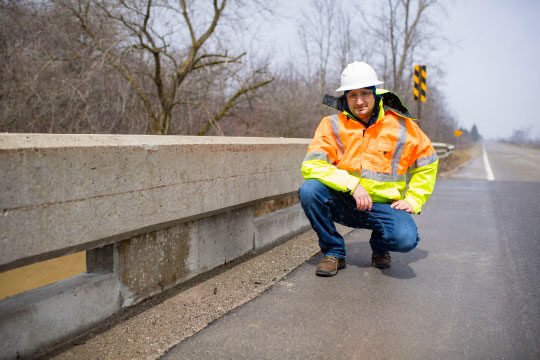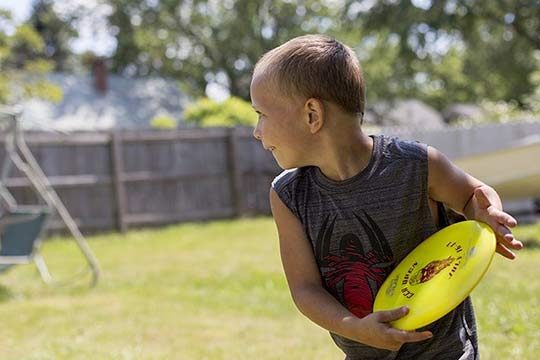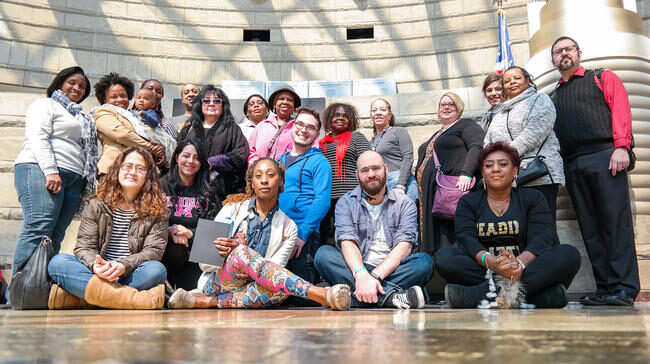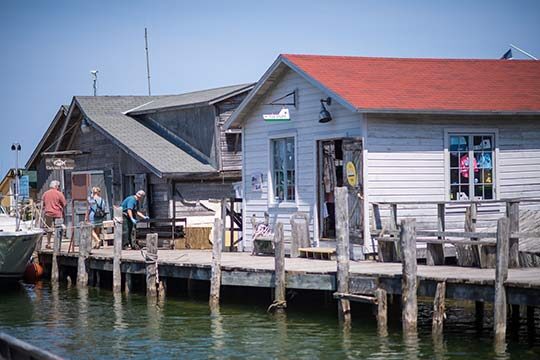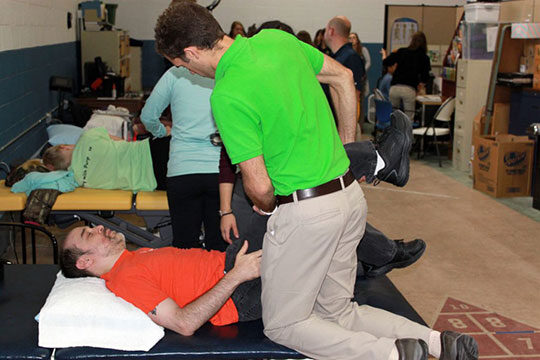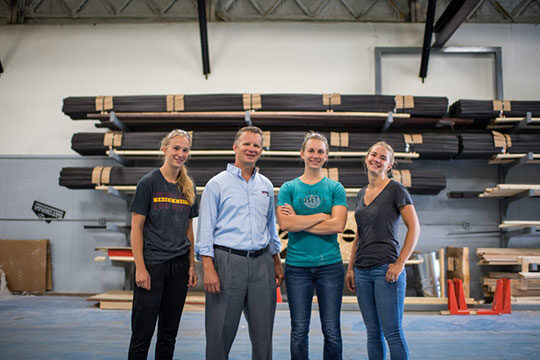This is Michigan
Boosting economic mobility. Stamping out disease. Protecting the Great Lakes. U-M creates impact far beyond the classroom, dispatching knowledge and expertise statewide that touches nearly every aspect of our lives. Check out these scenes of our work around the Mitten.
-
Tooth fairy
Every summer, the campers at Bay Cliff Health Camp gather on the grounds in picturesque Big Bay in the Upper Peninsula of Michigan, taking turns around the flagpole, exploring the water and nature — and climbing in the dental exam chair. The dental program at Bay Cliff is one of 16 Community-Based Dental Education Program sites across Michigan, including Bad Axe, Battle Creek, Detroit, Midland, and Traverse City, where the children of migrant farmers receive care. Read more
-
Oh, Mother Nature
“You can’t stop her, but you can plan for her,” says Bridgman, Mich., mayor Hannah Anderson. U-M researchers are part of a program in Western Michigan to train officials in coastal management and help them better understand the threats posed by climate change and building in floodplains. The training aims to preserve the shorelines and beaches of the Great Lakes. Read more
-
Concrete mixer
Michigan’s Department of Transportation recently reached out to U-M engineers for help fixing the state’s crumbling infrastructure. At MDOT’s request, U-M researchers led the development of a generic version of ultra high-performance concrete, which is stronger and more durable than conventional versions but can be mixed together with off-the-shelf products. It’s currently in use on a bridge in St. Clair County. Local officials plan to use it on at least four more this year.
The formula is published, for anyone’s use free of charge, in the January issue of Concrete International, a magazine published by the American Concrete Institute. Read more -
He has a new heart!
“We went from thinking we had a mostly healthy little boy with some asthma problems to hearing he had a heart problem so serious he’d need a heart transplant to live. It was terrifying,” says Chelsea Dalek, whose son, Landyn, received a new heart at C.S. Mott Children’s Hospital. Nearly 1 in 100 babies are born with congenital heart disease, underscoring the need for ongoing research to treat patients long term and to find alternatives to transplants. Read more
-
Solving Detroit’s teacher shortage
U-M Dearborn associate professor Karen Thomas-Brown is working to build up Detroit’s teacher roster from the inside. Thomas-Brown and her colleagues identified 10 “emerging teachers” (paraprofessionals and long-term substitute teachers already working in the system, for example) and provided them with coaching, academic counseling, professional development, and funding for 15 credit hours of university coursework to count toward an elementary certification.Read more
-
Maritime preservation
Nels Carlson, 2005 graduate of U-M’s School of Environment & Sustainability, uses lessons from his student research days to add to and enhance the work he does as the fifth-generation owner of Carlson’s Fishery. It is a popular tourist draw in historic Fishtown on the Leland River. Carlson’s is regularly called on by U-M’s Sea Grant program, the Michigan Department of Natural Resources, local conservation officers, and various researchers to collect or share information about the water and its fish. Read more
-
Heart to heart
PT Heart is a UM-Flint student-led, pro bono clinic, housed within the city’s Catholic Charities North End Soup Kitchen. The clinic started in January 2012 and is staffed and managed by physical therapy and health education students. They schedule patients and student volunteers and manage equipment, fundraising, and promotions. The clinic offers free physical therapy, health education, and rehabilitation treatment to uninsured and underinsured people. Burton resident Dave Schultz (pictured here) comes to PT Heart for therapy related to cerebral palsy. Read more
-
Brewing sustainably
U-M grad Kris Spaulding and her husband, Jason, co-founded the first Silver LEED-certified commercial microbrewery worldwide in Grand Rapids. Brewery Vivant combines Jason’s brewing experience with an environmental focus from Kris’ studies at U-M’s School for Environment and Sustainability. The brewery derives its power from renewable energy sources; purchases more than 60 percent of supplies in Michigan; and donates 1 percent of sales locally. The brewery also uses cans instead of bottles because the aluminum can is more likely to be recycled, is easier to ship, and reduces the carbon footprint. Read more
-
Road to success
Neuvokas Corp., a manufacturer in the tiny village of Ahmeek, Mich., produces Gatorbar, a fiber-reinforced polymer rebar used to strengthen concrete in buildings, roads, and bridges. But its small staff and lack of industry connections kept it from taking a bigger bite out of the road-building market. After receiving the support of the Economic Growth Institute at the University of Michigan, its sales increased from less than $5,000 to more than $1 million in five years.
Read more -
Technology meets accessibility
A group of U-M students has turned the belief that information is power into a tool that helps people with disabilities know which restaurants, stores, libraries, concerts, and many other public places are barrier-free – before they go. It’s one of at least 25 projects to grow out of the Citizen Interactive Design project, a multi-disciplinary course at the School of Information Science, which forms multi-year partnerships with communities and organizations looking for information solutions to problems. Read more


